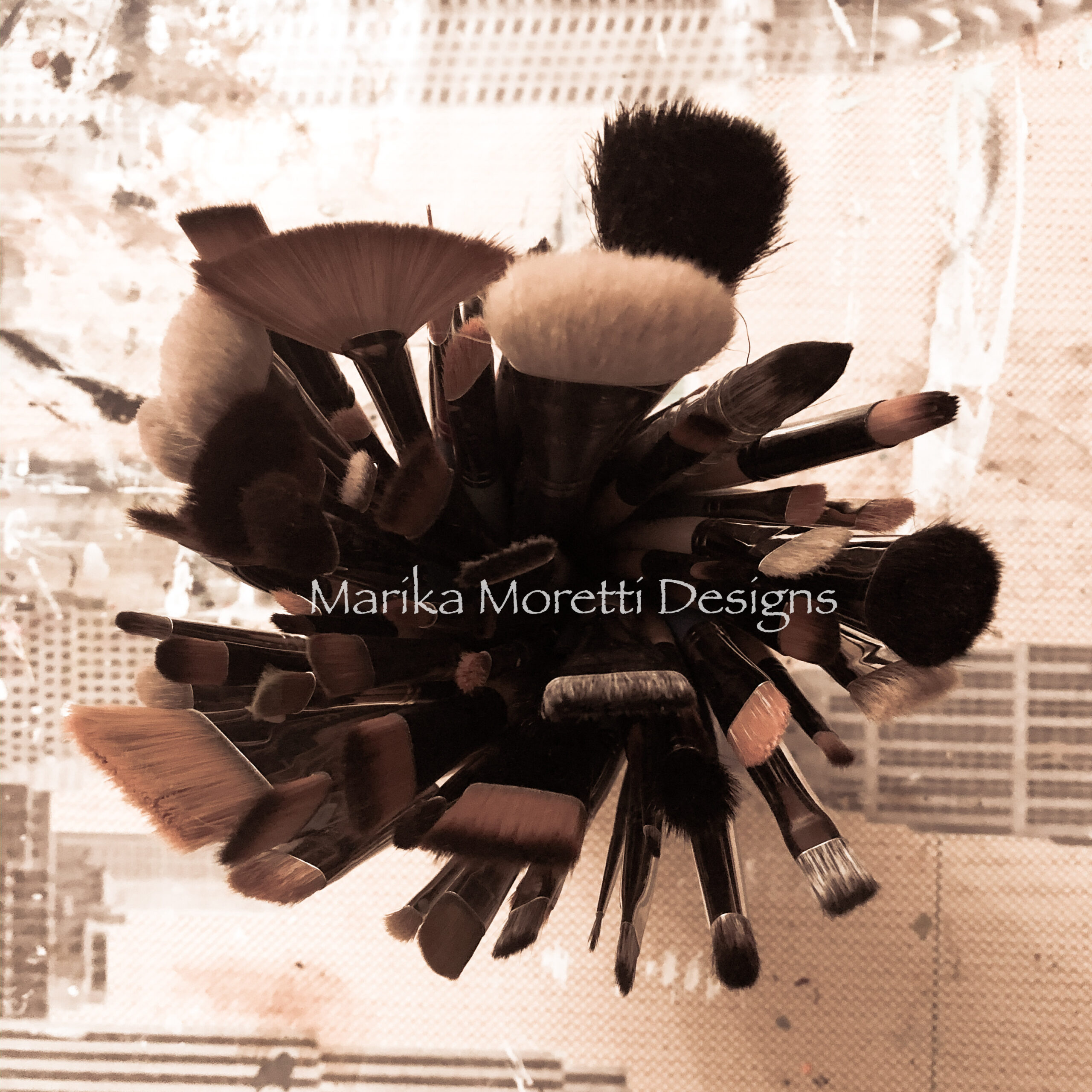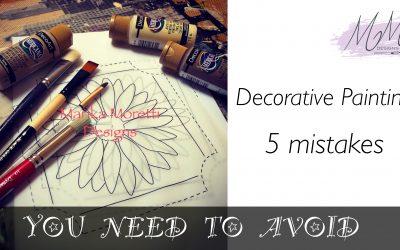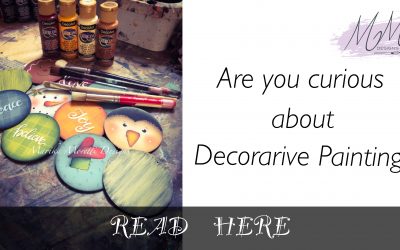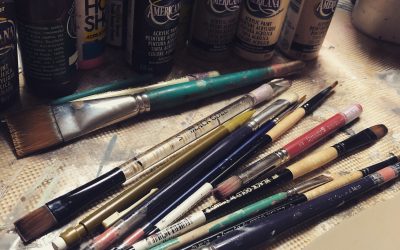I often get asked what are my favorite brushes for Decorative Painting, so I told to myself… I need to put everything down and write an article about it 😊
Honestly speaking, and I also mentioned in the article about base coating, choosing the right brush is related to what we need to do in that moment. For example, the material we’re painting on, the shape of our elements… and so on.
There are really many, and I mean MANY brushes that I like! I have to admit that I have been trying a bunch of them over the years… different types… different brands. And you know what? I never got rid of any of them! That’s right, never through a paint brush away! You could use it for make-up if it doesn’t work for painting… and also the most worn brush could be useful, mabe just to keep your hair up in a hair bun 😉
Well, choosing my favorite brushes for Decorative Painting is not so easy, but I guess the following 3 are the ones I feel more connected with because they also affected my creative journey in some way. This is why I gave a word to each one.
Number three, the Stippler brush: the beginning
When I first began painting, in 2007, I really enjoyed painting bears. I think I have painted so many that there should be one in every home of my relatives and friends! So, the stippler brush is actually one of the first I began using.
As I mentioned in the tutorial about how to use the Stippler brush, the stippler is perfect if you want to reproduce a soft effect, so it’s very indicated if you want to paint fur, but I use it also to paint flowers or snowmen. So, it’s perfect to create things that don’t have a sharp outline. Actually, in these cases, if you go outside the edges is even better.
Number two, the Mop brush: the turning point
And this is not just a Mop, it’s the Maxine Mop by Loew Cornell. This brush really set a specific moment in my artistic journey, because from that time on, my artworks reached the quality I was looking for. As I mentioned in the turorial about how to float colors, being able to float properly is extremely important in Decorative Painting because it really brings your project to life. In the very first years, I used other mop brushes, and I was always frustrated because I couldn’t have control on the brush. It was like when I was floating, the color was “slipping away” and I couldn’t place it where I wanted.
Then, in 2012, I met Maxine Thomas. She is not only a great teacher, but she also began to be my mentor and then a real friend. I explained her I was struggling with floats and she gave me her brush to try. She taught me how to use it and… it was love at first sight! From that point on, all my floats were how I wanted them to be, because I was able to control the brush and put the paint exactly where I wanted. Of course, it took a bit of time and practice… but that brush really set the turning point of my painting path.
PS: Loew Cornell is not producing that brush anymore… but you can find another one that’s exactly the same by Kingart. I use this too now.
Number one, the Liner brush: the awareness
At the beginning, I really had a hard time with the liner brush. As I said in the tutorial about how to use the liner brush, this brush can be challenging for beginners because it as few hair and it’s not so easy to manage.
Actually, I really hated it! Everytime I needed it for details, it was a disaster, and it took so long to finish a project because I never liked what I was doing.
In this case, unlike the Mop, it was a gradual change from “disaster to… not bad, than… oh, great!”. It took time, practice and a lot of patience. Then I started enjoing the detail phase instead of avoiding it.
Then, I also began appreciating how versatile this brush can be, because with the liner brush we can make so many things, not only details.
Since I experienced this myself, I usually stick up for the liner during my Decorative Painting classes, because many of my students don’t like it. I know it’s not the easiest brush to use, but trust me when I say that when you learn how to have the right control on it, no detail will ever be a secret!
I always tell my students that brushes need to be tried. What works for me may not work for you. There are brushes I purchased for something that now I use for something else, but this is also what makes art different. Simply using our imagination, we can use tools in a different way instead of having them just hidden somewhere 😊
Well, these are my favorite brushes for Decorative Painting! I hope I gave you some inspiration and I can’t wait to know what are your favorite ones!
Have fun painting!
Marika




0 Comments